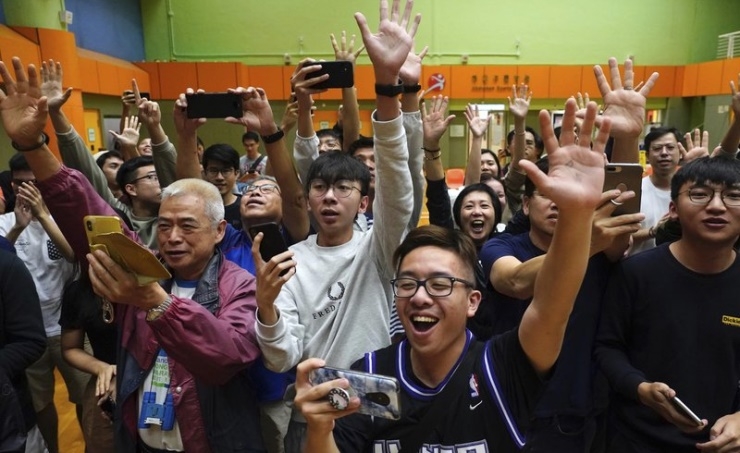Pro-democracy candidates advance in key Hong Kong elections
Pro-democracy candidates won nearly half of the seats in Hong Kong’s local elections, according to partial returns Monday, as voters sent a clear signal of support for the anti-government protests that rocked the Chinese territory for more than five months.
A record 71% of the city’s 4.1 million registered voters cast ballots Sunday, well exceeding the 47% turnout in the same election four years ago, election officials said to the Associated Press (AP).
So far, pro-democracy candidates have won 201 out of 452 seats in 18 district councils. Previously, the bloc had fewer than a third of the seats.
Among the winners were former student leaders and a candidate who replaced prominent activist Joshua Wong, the only person barred from running in the election. Rally organizer Jimmy Sham, who was beaten by hammer-wielding assailants last month, also triumphed, as did a pro-democracy lawmaker who had part of his ear bitten off by an assailant.
Hong Kong’s largest pro-Beijing political party suffered the biggest setback, with at least 155 of its 182 candidates defeated. Among the losing incumbents was controversial lawmaker Junius Ho, who was stabbed with a knife while campaigning this month.
The pro-democracy camp hailed its strong gains in the normally low-key race as a "victory" for the Hong Kong people. Candidates said the city’s embattled Chief Executive Carrie Lam must heed protesters’ demands including free elections for the city’s leader and legislature, and an independent probe into alleged police brutality.
Voting was peaceful amid tight security, with hardly anyone seen wearing protesters’ trademark black clothing or face masks. Many voters turned up early to cast their ballots, leading to long lines that extended for blocks.
The vote is the only fully democratic one in Hong Kong. Members of the legislature are chosen partly by popular vote and partly by interest groups representing different sectors of society, and the city’s leader is picked by a 1,200-member body that is dominated by supporters of the central government in Beijing.
Related Posts

